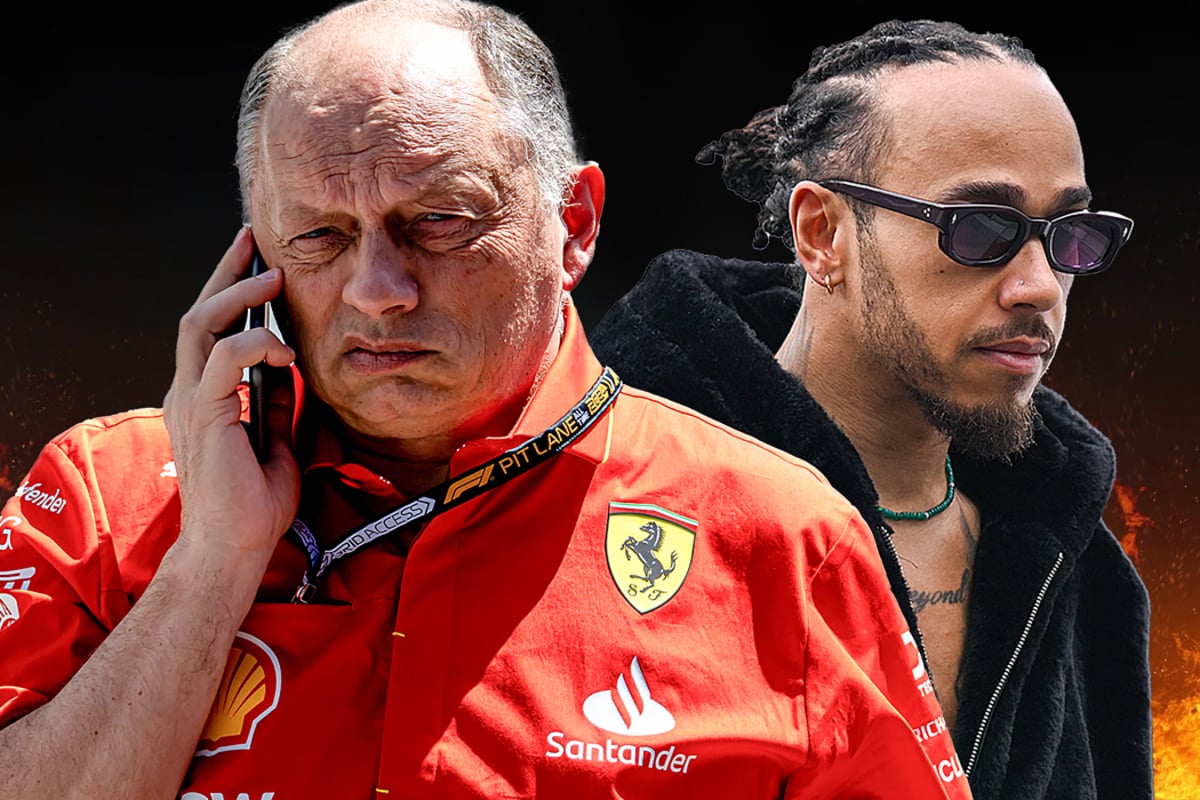Hamilton holds key to contract talks as Ferrari star’s future h… read more
The Formula 1 world is abuzz with contract negotiations and speculation, with Lewis Hamilton’s seemingly straightforward contract extension at Mercedes holding a surprising amount of sway over other key players, most notably Charles Leclerc’s future at Ferrari. While Hamilton’s situation appears settled, at least in principle, the ripple effects of his decision on the broader driver market are profound, particularly impacting the ongoing negotiations surrounding the highly-rated Monegasque driver.
Hamilton’s extension with Mercedes, though yet to be officially signed and announced, is widely expected to be finalized soon. The delay, however, has sparked intriguing speculation within the paddock. Sources suggest that Hamilton’s meticulous approach, carefully scrutinizing every detail of his contract, including the team’s long-term strategic direction and commitment to building a championship-winning car, is setting a precedent. This meticulousness is influencing other drivers and their negotiations, as they observe the level of control and leverage a driver of Hamilton’s stature can exert. His detailed contract analysis serves as a benchmark, raising the expectations of other high-profile drivers and their agents.
The most significant impact of this protracted Hamilton negotiation is felt at Ferrari. Charles Leclerc, a prodigious talent considered one of the brightest stars in F1, is yet to agree on a contract extension with the Scuderia. While Ferrari publicly insists they are confident of reaching an agreement, the ongoing discussions reveal a complexity exceeding mere financial terms. Leclerc’s team is reportedly studying Hamilton’s contract with intense interest, using it as a yardstick to measure Ferrari’s commitment to long-term success and their willingness to provide the resources and strategic direction necessary to compete for championships.
The narrative surrounding Ferrari is fraught with complexities beyond Leclerc’s contract. The team’s recent performance, marked by inconsistent results and strategic blunders, has cast a shadow over their ambition. While Ferrari boasts a rich history and fervent fan base, Leclerc’s potential is arguably exceeding the team’s current ability to consistently deliver a competitive car. This disparity between driver potential and team performance is the crux of the negotiations. Leclerc’s camp is not merely seeking a high salary but assurance that Ferrari is genuinely committed to building a winning car, a commitment that needs to be demonstrably reflected in the team’s structure, resource allocation and strategic planning.
Hamilton’s influence extends beyond merely setting a financial precedent. His detailed involvement in the Mercedes negotiations indicates a growing trend among top drivers demanding a greater say in their team’s direction. This includes not just the car’s development but also the team’s overall management and strategy. Leclerc, keenly aware of this shift in driver power dynamics, is leveraging this changing landscape. He’s using Hamilton’s negotiations as leverage to secure not only a lucrative deal but also guarantees of Ferrari’s commitment to building a consistently competitive car and supporting his ambition to win world championships.
The uncertainty surrounding Leclerc’s future extends beyond Ferrari’s internal struggles. Other teams are watching intently, ready to pounce if negotiations falter. The prospect of Leclerc joining a different team, particularly one with a more robust and established winning formula, would send shockwaves through the F1 world. This possibility adds further pressure on Ferrari to finalize a contract that meets Leclerc’s demanding terms and assures him of Ferrari’s long-term commitment.
Ultimately, the Hamilton contract, while seemingly a straightforward extension, is proving to be a catalyst for significant changes within the driver market. It has highlighted the increasing power wielded by top drivers, their capacity to influence the strategic direction of teams, and their ability to shape the future of Formula 1 through meticulous contract negotiations. The outcome of Leclerc’s negotiations will be a critical indicator of the success of this new era of driver empowerment and the extent to which a driver’s ambition and influence can shape a team’s trajectory and, in turn, the entire landscape of Formula 1. The next few weeks are crucial, and the global F1 fanbase waits with bated breath for the announcements that will shape the future of the sport’s most significant players.




